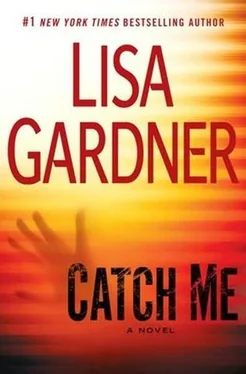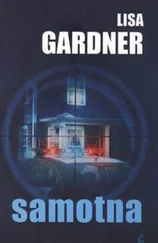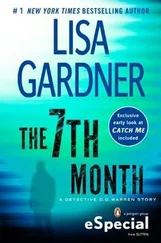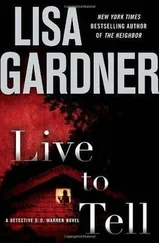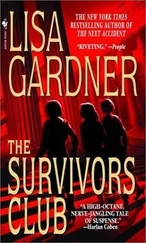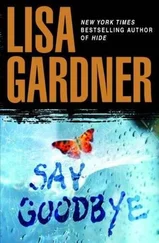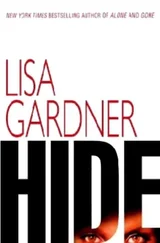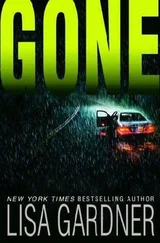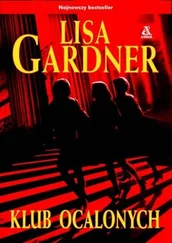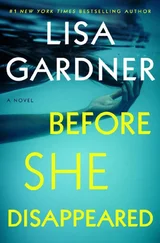I looked like a cat burglar, or a New Yorker, depending on your frame of reference.
I loved the shoes and tried to get over it. Phase four of operations involved pitching the entire ensemble into a public Dumpster. Not that the police couldn’t find or wouldn’t find the items, but there was nothing to prove these particular secondhand clothing articles were mine. A precaution built into a precaution built into a precaution.
So far, it had worked for me.
Exiting the house, I wore a bright turquoise scarf and matching hat and oversized mittens. I’d read somewhere that one of the keys to any disguise was distinguishing accessories-later, witnesses would associate me with the aqua scarf or shocking gloves, meaning I couldn’t be the black-clad perpetrator. Obviously, I was wearing turquoise at the time!
I had my messenger bag slung over my shoulder, stuffed with wadded newspaper to give it the appearance of bulk. Later, the newspaper would be tossed and replaced with my overbright scarf, hat, and mittens. For now, the bulk of the leather bag disguised another telltale bulge-my Taurus. 22 holstered at my waist on a belt specially designed by my firearms coach, J. T. Dillon, to hold twenty-seven extra rounds of ammo.
I would see him for the last time tomorrow. I had a feeling he knew a little bit about tonight, too. But he didn’t pry and I didn’t inform. Instead, our conversation two weeks ago had gone something like this:
“If I needed to, say, establish a new identity…for example, get my hands on a complete set of top-of-the-line papers, would you know who I might contact to make such arrangements?”
J.T., loading his. 45. “Seems like I get asked that question a lot.”
“Beats girls asking what’s your sign.”
J.T., finally looking up at me. Me, doing my best not to squirm beneath that gaze. Before J.T. took on a serial killer, shot up half of Massachusetts, and eventually found a wife, he was a marine, Force Recon. Mostly, he reminded me of an old gunslinger, possessing the salt-and-pepper hair, leathery brown face, and deeply lined eyes of a man who’d spent most of his life peering into the horizon and was never surprised by what he saw there.
“Nothing’s cheap,” he said.
“I got a rainy day fund. Hey, it’s raining.”
“My wife likes you,” he said, as if that settled the matter for him. Maybe it did. I’d met his wife only once before. She’d studied me for half a second, then walked over and wrapped me into a tight embrace. I got the feeling Tess was as tough as her husband, and that if I ever took them up on their offer of dinner, we’d have a lot to say.
J.T. provided a name. Told me to wait twenty-four hours, so he could vouch for me. He must’ve, because when I made the call two days later, the crisp-voiced woman on the other end seemed to be expecting me. She asked questions. I provided answers. And three days ago, for the bargain basement price of one thousand dollars, I picked up three sets of brand-new, top-of-the-line fake papers: three birth certificates, three Social Security cards, one driver’s license.
Everything a terrified woman might need to stay on the run for the rest of her life.
I wasn’t sure I could imagine that, to tell you the truth. It’s funny, but boxing and shooting and running had awakened something inside me. Turns out, I had a violent streak. It’d only taken me twenty-eight years to figure that out, but these days, I was doing my best to make up for lost time.
Exiting the back door of my landlord’s house, I was grateful to come around and discover the front porch clear, no sign of Tulip. Tonight was a solo mission for sure.
I hunched deeper into my coat, chin tucked to collar to fight the biting cold, and set off for Harvard Square. Ten-minute walk to the T stop. Eight minutes waiting for the train, then off and moving again.
Rush hour, the subways crammed full. I stood in the middle, just another nameless commuter, hand gripping the metal support pole, legs swaying in rhythm with the railcars, inhaling the subterranean scents of sweat and urine and wet wool coats.
I hummed softly under my breath, my only concession to my growing nervousness.
Seventy-five hours left to live.
What would you do?
SKY WAS PITCH-BLACK when I returned to upper earth, pushing my way through the creaky turnstile, hiking up the steps to another darker, quieter section of Boston. Street lamps did their best to combat the relentless winter night, but they’d been positioned too far apart, casting the icy sidewalk into large enough pools of shadow to make a lone female think twice. I shed the turquoise scarf, hat, and mittens, shoving all deep into my pack. Then I flipped my messenger bag backwards, pouch bouncing against my rear. No need to disguise my hip holster anymore. In this neighborhood, everyone was probably packing, and blending in was my best shot at survival.
Turned out, even snow was ugly in housing projects. The mountains where I used to live, Harvard Square where I now lived, blanketed in yards of white fluffy Norman Rockwell snow. Not here. In this section of town, snow became just another form of litter. Gray, sandy, riddled with yellow pools of dog piss and bristling with discarded straws, Big Gulp lids, cigarette butts. You didn’t look at this kind of snow and think of Christmas lights, cheerful hearth fires, or mugs of hot cocoa. You walked by these piles and figured even Mother Nature was an unforgiving bitch.
I set off, following a map I’d committed to memory to find an address I’d never written down. Another precaution rolled into a precaution.
Sidewalks weren’t empty. In an inner city neighborhood, they never are. I walked by groups of hulking black teens, baseball caps worn backwards, down coats four sizes too large, chests gleaming with gold chains. Some were laughing, some were smoking. Some were already pushing and shoving, maybe in jest, maybe not.
They all looked up. Started. White chick, on their streets.
I smiled at them. I put my finger to my lips. I exhaled softly, Shhhh.
And just like that, they quieted, stepped away.
I think it had to do with the look in my eyes. One each of them recognized, most likely contemplated every single morning when standing in front of his mirror.
You want to know what it feels like to having nothing left to lose?
Liberating.
Intoxicating.
Dangerous.
6:02 P.M., I acquired my target.
Seventy-four hours left to live.
What would you do?
TOMIKA MET ME IN THE FOYER. She had the kids bundled up so thickly only their eyes, brilliant white, appeared against their dark faces. Michael, the older boy, had a red backpack. Mica, the four-year-old girl, clutched a blanket and a teddy bear. Tomika carried the rest, two black duffel bags slung over each shoulder. Eight years of marriage, twenty-six years of living, condensed into two midsized travel bags.
I faltered. My foot, coming over the threshold, missed. I stumbled, caught myself in the doorway.
Then I did something curious even for me. I exhaled, so I could watch my breath form a misty trail in the ice-cold night.
That satisfied me. Made me feel that the scene was exactly right.
“Has he called?” I asked softly.
“Five minutes ago.”
I glanced at my watch, set a mental deadline. “Let’s go.” I held out my arm, and it seemed the most natural thing in the world for nine-year-old Michael to loop his hand through it. I smiled down at him. He gazed solemn-eyed back up at me, and again, the scene felt right.
Tomika had called dispatch for the first time six months ago. Usual story. Drunk, angry husband, tearing up the place. Usual results. Police showed up, talked her husband down; she refused to press charges.
But six weeks ago, Michael called the hotline. Their mother had gone out, leaving him and his little sister alone with their father. Now they were huddled in the closet, trying not to be seen or heard because other men were over and had gotten to arguing and one had pulled a gun and Michael had grabbed his little sister and jammed them both into the back of their parents’ closet and he didn’t know what else to do.
Читать дальше
